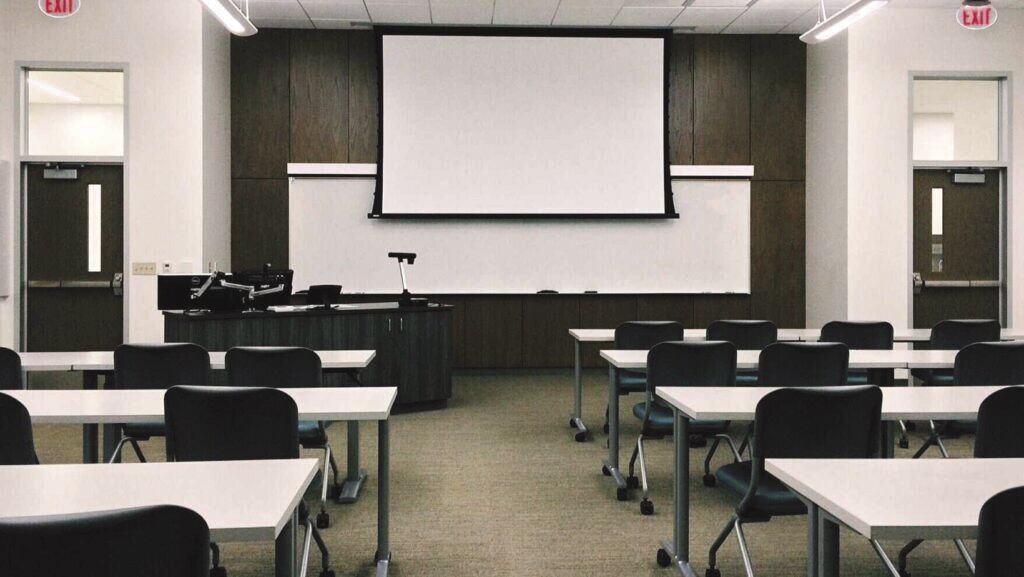Lawmakers advance education savings accounts, parents’ curriculum choice
Published 10:51 am Thursday, March 21, 2024

- Generic Classroom
Parents who want to tap into taxpayer money to send their children to a private school or a different public school could soon have that choice based on legislation a Louisiana Senate committee advanced. Eventually, the resources would be available to any family regardless of their income.
It was one of two proposals the Senate Education Committee approved Wednesday, which supporters have promoted as “parental choice” measures. The other prioritizes families over school system administrators when determining an individual student’s curriculum choices.
Committee chairman Sen. Rick Edmonds, R-Baton Rouge, amended his education savings account (ESA) bill with one Rep. Julie Emerson, R-Carencro, introduced in the House. It would create the Louisiana Giving All True Opportunity to Rise (LA GATOR) Scholarship Program.
The program would launch in the 2025-2026 academic year, with student enrollment starting next March. The money would only be available to families with income under 250% of federal poverty guidelines. For a family of four in Louisiana, the ceiling would be $125,000 annually.
In subsequent years, the requirements would ease before the program becomes available to all families, regardless of income, by the 2028-2029 school year.
“This is not just an education bill, in my opinion,” Edmonds said. “It’s a chance to move the needle, a generational opportunity.”
If approved, Louisiana would join 13 states that have enacted education savings accounts: Arizona, Arkansas, Florida, Indiana, Iowa, Mississippi, Montana, New Hampshire, North Carolina, South Carolina, Tennessee, Utah and West Virginia.
Sen. Katrina Jackson-Andrews, D-Monroe, asked Edmonds to defer his bill for a week because she said she didn’t have the time to digest all nine pages of amendments tacked on Wednesday. She cast the only committee vote against advancing his bill.
Jackson-Andrews was also against providing students from all public schools access to the savings accounts. Schools that have earned A or B school performance grades from the state shouldn’t lose any resources if a student wants to enroll elsewhere.
Edmonds said he didn’t expect any “vast exodus” from A- and B-rated schools. Emerson said even if just a handful of students at a high-performing school want to pursue other options, their families should be given that choice.
The phased-in approach to Louisiana’s ESA program would help avoid the immediate high costs some other states have been forced to bear by making their accounts universally available from the start, Edmonds said.
In 2022, Arizona’s then-Gov. Doug Ducey, a Republican, and state lawmakers approved universal ESAs. Projections for the placed the cost to taxpayers at more than $900 million for the 2023-2024 current school year — 1400% higher than originally predicted — according to a report from Save Our Schools Arizona.
Edmonds said the price tag for the first year of LA GATOR would reach $1.5 million, but he offered no estimates for subsequent years.
Steven Procopio, president of the Public Affairs Council of Louisiana, placed the cost of LA GATOR at $650 million annually in five to seven years. It’s an amount he told the committee the Legislature wouldn’t be able to provide, though his nonpartisan organization doesn’t take a position on the legislation.
One suggestion Procopio offered was the Texas ESA model, which includes a priority system focused on families who are trapped in poor performing schools for economic reasons.
The most prominent opposition to the ESA program is the Louisiana School Boards Association. Dannie Garrett, who handles government relations for the group, noted the proposal lacks any accountability measures. There are a variety of measuring tools for public school performance that don’t apply to private schools eligible to reach money from the savings accounts.
“We’ll never know how well those dollars were spent if we’re not comparing the same things,” Garrett said.
An existing school voucher program, available only to low-income families, would be absorbed by LA GATOR, Edmonds and Emerson said. Both attested to the positive results vouchers have netted, but Garrett challenged those claims.
He cited 2023 data from the state education department that show the average public school district performance score was 78.5, a B on the letter grade scale.
Students who received vouchers averaged a score of 52. A score of 50 or below is considered failing.
“This doesn’t make a low performing school better. It just moves the money somewhere else,” Garrett said.
The LA GATOR proposal moves next to the Senate floor
The Senate Education Committee unanimously advanced another Edmonds proposal that allows parents to weigh in on the classes their children take. The Course Choice Program removes the authority of district superintendents to approve a student’s course load. Instead, a parent’s or legal guardian’s signature would be needed for the child’s choices to be made official.
Edmonds said his proposal would not affect graduation rates, as it calls for a school guidance counselor to hold an annual review with the student to ensure their academic plan is appropriate and keeps them on track to receive a diploma.
The committee also supported a bill from Sen. Blake Miguez, R-New Iberia, that would require school districts to pay teachers and support personnel for any additional duties they are assigned beyond the scope of their existing job description. Some districts already add money to employees’ paychecks when they take on additional responsibilities. Miguez’s proposal would apply to all districts.
Michael Faulk, head of the Louisiana Association of School Superintendents, said the group opposes the bill because of the unforeseen costs.
Cynthia Posey with the Louisiana Federation of Teachers told the committee its members support the proposal.
“This is the reality that our school districts run on unpaid overtime. This bill will fix that,” Posey said.





